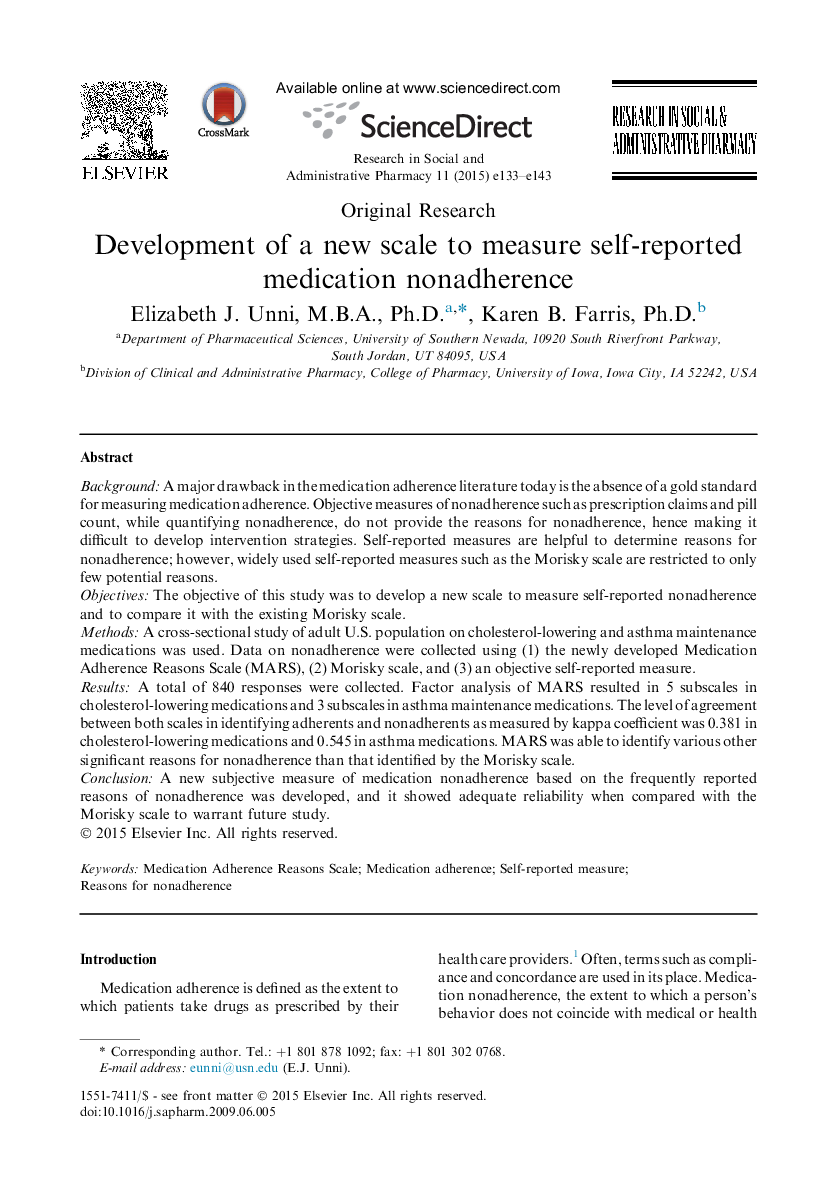| Article ID | Journal | Published Year | Pages | File Type |
|---|---|---|---|---|
| 2508326 | Research in Social and Administrative Pharmacy | 2015 | 11 Pages |
BackgroundA major drawback in the medication adherence literature today is the absence of a gold standard for measuring medication adherence. Objective measures of nonadherence such as prescription claims and pill count, while quantifying nonadherence, do not provide the reasons for nonadherence, hence making it difficult to develop intervention strategies. Self-reported measures are helpful to determine reasons for nonadherence; however, widely used self-reported measures such as the Morisky scale are restricted to only few potential reasons.ObjectivesThe objective of this study was to develop a new scale to measure self-reported nonadherence and to compare it with the existing Morisky scale.MethodsA cross-sectional study of adult U.S. population on cholesterol-lowering and asthma maintenance medications was used. Data on nonadherence were collected using (1) the newly developed Medication Adherence Reasons Scale (MARS), (2) Morisky scale, and (3) an objective self-reported measure.ResultsA total of 840 responses were collected. Factor analysis of MARS resulted in 5 subscales in cholesterol-lowering medications and 3 subscales in asthma maintenance medications. The level of agreement between both scales in identifying adherents and nonadherents as measured by kappa coefficient was 0.381 in cholesterol-lowering medications and 0.545 in asthma medications. MARS was able to identify various other significant reasons for nonadherence than that identified by the Morisky scale.ConclusionA new subjective measure of medication nonadherence based on the frequently reported reasons of nonadherence was developed, and it showed adequate reliability when compared with the Morisky scale to warrant future study.
